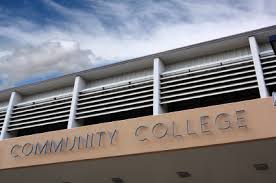 Have you ever wondered what it would be like to work in a certain career or hold a specific position? I wanted to give you all some insight as to what it was like for me to be an Audit Intern at a medium sized CPA firm. I wanted to inform you what my day entailed. Lastly, I wanted to give you some insight as to how to get such a position.
Have you ever wondered what it would be like to work in a certain career or hold a specific position? I wanted to give you all some insight as to what it was like for me to be an Audit Intern at a medium sized CPA firm. I wanted to inform you what my day entailed. Lastly, I wanted to give you some insight as to how to get such a position.
What I Did…
Please understand that every position and company can be different, so I am only writing about my own experiences. The company that I worked for mostly audited government agencies, so the busy season came during the second half of the year. While I was in school, we agreed I would work 3 eight hour days during the week. Because the company was smaller than a Big 4 accounting firm, I got a wider range of duties than the average intern. My travel ranged from 5 minutes to 2 hours depending on which organization we were auditing.
My day consisted of reviewing financial statements and making sure the information was correct. Each line item in the financial statement had a to-do list that needed to be completed. We were there to prove what was on the financial statements was correct. Sometimes that meant witnessing the inventory ourselves or selecting samples documentation to make sure the procedures were followed correctly. At the end of the audit, I would be the final editor. I would check spelling, grammar, and the math of the final financial statement.
What is was like…
If you are one of those people who likes to work by yourself, this may be a good position for you. To me, the job was very lonely. You typically did your work at the agency that you were auditing. Most of the time those employees did not was to talk to you because they were scared of you. At times, we had a group of auditors in a conference room, so I did get to work in a group setting. As an auditor you are required to travel, so you may have to spend the night out of town. It is important to understand the difference between and internal; and external auditor. I was external, meaning I was coming in from the outside and I did not work for the agency itself. I was hired by the agency to do a job.
The position pays well, especially for a student. I have seen hourly wages range from $15-30/hour. If income it important to you, this may be an ideal position.
The hours count towards your CPA experience. If you are working under a CPA, your hours will count towards your CPA certification. You do not have to graduate to start the work experience portion of the CPA certification.
You can move up pretty quickly. If you work hard and pass your CPA exam it is rather easy to keep moving up in these type of organizations. The supply of good, hard-working, Certified Public Accountants is just not as high as the demand. I know many people who pass their exam and got an immediate bump in salary and tittle within the company.
How to get the job…
Start looking early. Most people wait until the last semester to look for an internship. Most organization that I spoke to at Meet The Firms were wanting to hire students in the sophomore or junior year of college. If you get in early and work your but off, you will be ahead of the game.
Have the career center look at your resume. You would hate for a small mistake to keep you from getting that dream job.
Get great grades. Most accounting positions or internships had a minimum GPA requirement, especially in your accounting courses. Make sure you pay attention to your overall and major GPA.
Network! Get to know your classmates, your fellow accounting club members, your teachers, and the companies you want to work for. I first went to an informational meeting for the CPA firm, through the accounting club. Then I introduced myself again at Meet The Firms. After meeting them a few times and keeping in contact, they offered me an interview.
Ace the interview. Review your material. Although if you get good grades, you should understand the basic questions they may throw at you. Review the job description and what you talked about in past conversations. Think about what the company wants and how you can fill that for them. Dress the part, I have never seen an accounting interview that was less than business professional. Practice, Practice, Practice. I used the career center to get a mock interview.


